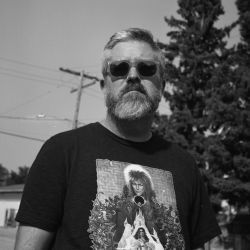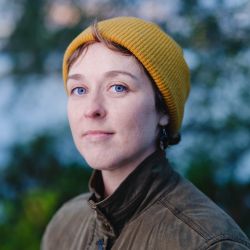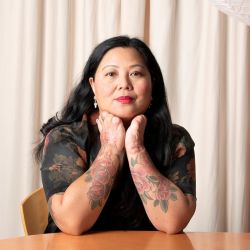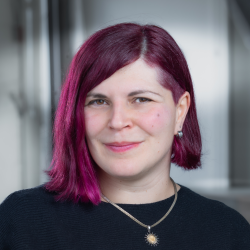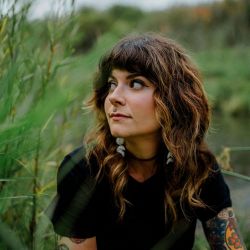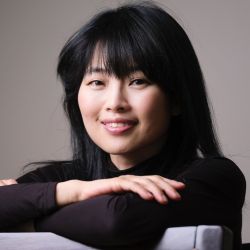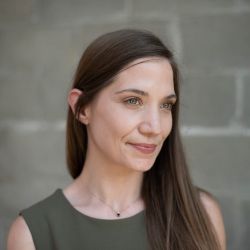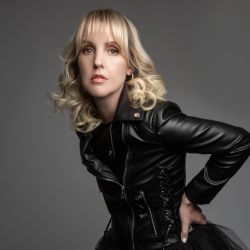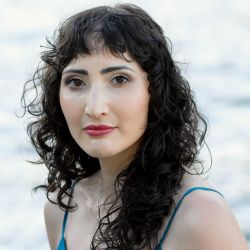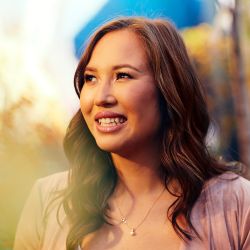Creating Mentorship for Deaf and Disabled Writers is a mentorship program designed to support the creative growth and professional development of Deaf and disabled writers. The Writers’ Union of Canada is committed to building opportunities and cultivating space where Deaf and disabled writers can share tools, strategies, feedback, and knowledge. The program includes one-on-one mentorship and a virtual networking session with industry professionals for mentors and mentees.
IMPORTANT DATES
Mentee Applications Open: September 24, 2025
EXTENDED Application Deadline: November 3, 2025, 11:59 pm PT / 2:59 am ET
Applicants Notified: December 2025
Mentorships Completed: January to Early February 2026
Industry Panel Discussion and Networking: February 19, 2026, 12:00 pm PT / 3:00 pm ET
Mentee Applications Open: September 24, 2025
EXTENDED Application Deadline: November 3, 2025, 11:59 pm PT / 2:59 am ET
Applicants Notified: December 2025
Mentorships Completed: January to Early February 2026
Industry Panel Discussion and Networking: February 19, 2026, 12:00 pm PT / 3:00 pm ET
MENTORSHIP FORMAT
Mentors are professional writers who are Deaf and/or disabled. Each mentor will choose one mentee to work with. Mentorships will last approximately 10 hours, which will include the mentor’s time reviewing materials and preparing for discussion. Mentors and mentees will have a six-week period for discussion (online discussion, email, or other technology as outlined in the mentorship application and agreed upon with the mentor), revisions, etc. Meeting times to be determined by the mentor and mentee and to be completed within the six-week period in advance of the final networking session.
Mentors are professional writers who are Deaf and/or disabled. Each mentor will choose one mentee to work with. Mentorships will last approximately 10 hours, which will include the mentor’s time reviewing materials and preparing for discussion. Mentors and mentees will have a six-week period for discussion (online discussion, email, or other technology as outlined in the mentorship application and agreed upon with the mentor), revisions, etc. Meeting times to be determined by the mentor and mentee and to be completed within the six-week period in advance of the final networking session.
MENTEES
Congratulations to the 2025 mentees:
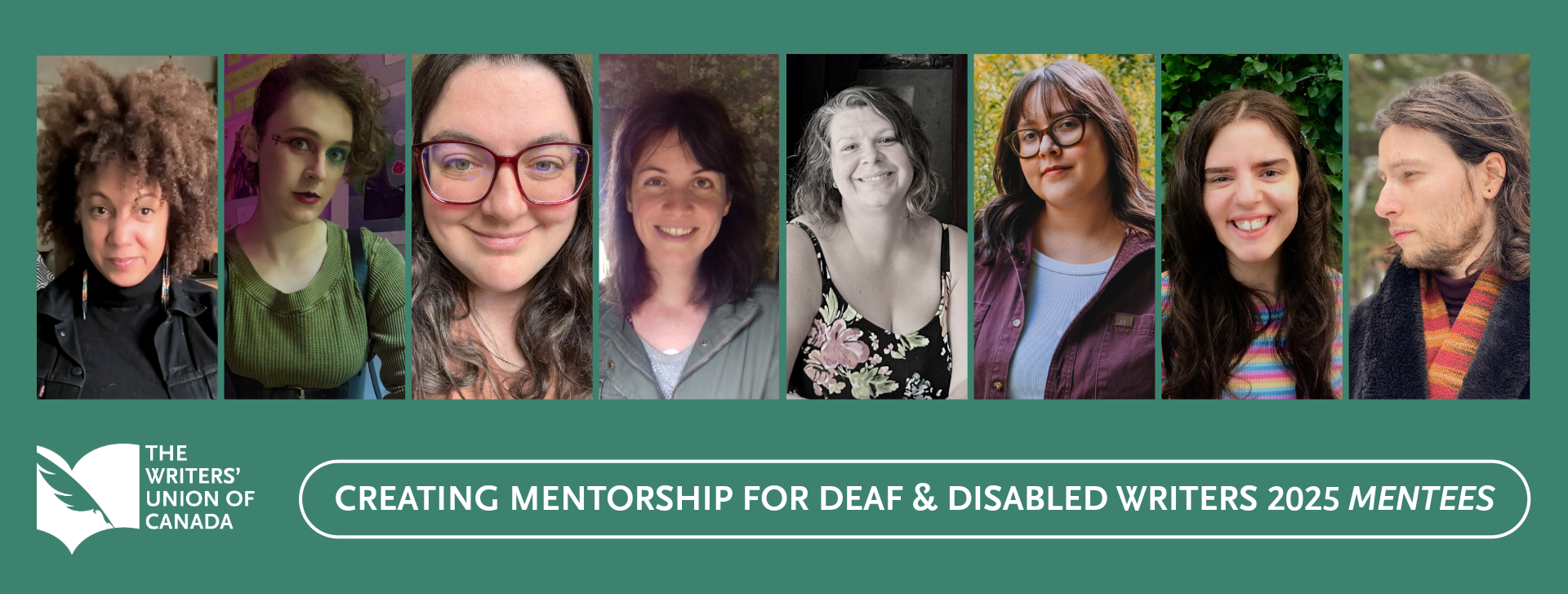
Anna J. McIntyre
Ashli Xenos
Brandi Estey-Burtt
Betsy Klotz
Hannah Siden
Jenna Timmons-Oikawa
Kit Roffey
Pamela Vaccariello
William John Wither
We also extend our warmest congratulations to the mentees who prefer to celebrate their participation privately.
Photo credits: Jenna Timmons-Oikawa photo by Grant Oikawa; Kit Roffey photo by Lauren Lee; Pamela Vaccariello photo by Matthew Vaccariello.
Congratulations to the 2025 mentees:

Anna J. McIntyre
Ashli Xenos
Brandi Estey-Burtt
Betsy Klotz
Hannah Siden
Jenna Timmons-Oikawa
Kit Roffey
Pamela Vaccariello
William John Wither
We also extend our warmest congratulations to the mentees who prefer to celebrate their participation privately.
Photo credits: Jenna Timmons-Oikawa photo by Grant Oikawa; Kit Roffey photo by Lauren Lee; Pamela Vaccariello photo by Matthew Vaccariello.
MENTORS
Jes Battis teaches literature and creative writing in the prairies. Their work has won the Saskatchewan Book Award, been shortlisted for a Lambda Literary Award, and included in the Canada Reads Competition. They are the author of nine novels, an award-winning collection of poetry, and multiple academic monographs. Their work centres characters that are trans, queer, disabled, and neurodiverse. Photo: Devin Wilger.
Conyer Clayton is a queer writer and editor from Louisville, Kentucky living in Ottawa. A MacDowell Fellow, Tin House Novel Summer Scholar, and author of two award-winning poetry collections and ten chapbooks, their third full-length collection of poetry, the lake-shaped excuse, is forthcoming in fall 2026 with Wolsak and Wynn. Conyer's fiction and poetry often explores grief, illness, and gender-based violence through a surrealist lens. Photo: Curtis Perry.
Therese Estacion is the author of Phantompains — a finalist for both the 2021 Indies Foreword Reviews and 2021 CLMP Firecracker Award. She has been a guest editor for ARC Poetry Magazine and Feels Zine, and was an adjunct professor at the University of Toronto’s School of Continuing Studies. She is currently seeing clients as a psychotherapist in training. Photo: Isabelle Côté.
Paola Ferrante is a writer living with depression. Her debut fiction collection, Her Body Among Animals (Book*hug Press, 2023), was a finalist for the Governor General’s Award for Fiction, a runner-up for the Danuta Gleed Literary Award, nominated for a Shirley Jackson Award, and a Silver Medal Winner in Foreword INDIES Book of the Year Awards. It was published in the UK by Influx Press. Her fiction has been longlisted for the Journey Prize, and her debut poetry collection, What to Wear When Surviving a Lion Attack (Mansfield Press, 2019), was shortlisted for the Gerald Lampert Memorial Award. She was born, and still resides in, Toronto, with her partner Mat and their son. Photo: Rob Skuja.
Tea Gerbeza (she/her) is the author of How I Bend Into More (Palimpsest Press, 2025). She is a neuroqueer disabled writer and multimedia artist with a very loud laugh. She has an MFA in Writing from the University of Saskatchewan and an MA in English & Creative Writing from the University of Regina. Most recently, her poem “Body of the Day” was a People’s Choice Award finalist in Contemporary Verse 2’s 2024 2-Day Poem Contest. She also made the longlist for Room Magazine’s 2022 Short Forms contest. Tea won the Ex-Puritan’s 2022 Austin Clarke Prize in Literary Excellence for poetry. Her work appears in Poetry Pause, ARC Poetry Magazine, Action, Spectacle, The Poetry Foundation, Wordgathering, and Contemporary Verse 2, among others. Her writing is preoccupied with themes of reclaiming disabled identity, embodiment, disability and queer justice, queer platonic friendships, memory (particularly bodymemory, postmemory), intergenerational trauma, and the complexities of pain. Photo: Ali Lauren Creative Services.
Dr. Keiko Honda, a former cancer epidemiologist, transformed a life-altering illness into a mission. After a rare autoimmune disease led to wheelchair use at age forty, she founded the Vancouver Arts Colloquium Society (VACS) in 2014. Awarded the City of Vancouver’s Remarkable Women Award (2014) and the King Charles III Coronation Medal (2025), Keiko champions intergenerational connections and empowers marginalized voices through art. Her inspiring journey is captured in her memoirs, Accidental Blooms (2023), Hidden Flowers (2025), and The Broken Map Home (2025).
Miranda Newman is a bestselling author. Her debut memoir-in-essays, Rough Magic (McClelland & Stewart, 2024), a collection about living with borderline personality disorder, won a 2025 Silver Nautilus Award and was a finalist for the 2025 Balcones Prize for Nonfiction. Miranda’s work has appeared in The Globe and Mail, Chatelaine, Broadview Magazine, The Walrus, and more. Miranda mentors writers with lived experience with the support of Yale University and The Writers’ Union of Canada.
Ardra Shephard is the author of Fallosophy: My Trip Through Life with MS (Douglas & McIntyre, 2025). She is the blogger and podcaster behind the award-winning Tripping On Air, and the host and creator of television’s Fashion Dis (AMI+). A columnist with Healthline’s BezzyMS (Ask Ardra Anything), Ardra is a sought-after writer, consultant, and speaker. A leader in the disability rights movement, Ardra serves on multiple advisory boards to advance accessibility and inclusion in Canada and beyond. Photo: Alkan Emin.
Léa Taranto is a disabled Chinese Jewish Canadian writer who lives with OCD and comorbid disorders. Her debut novel, A Drop in the Ocean, is based on an adolescence in inpatient treatment. An MFA graduate of the University of British Columbia, alumnus of Simon Fraser University Writer’s Studio, and member of PRISM International’s poetry board, she resides on traditional, unceded Halkomelem and Squamish territories in BC.
Leanne Toshiko Simpson is a Japanese Canadian writer, educator and psychiatric survivor from Scarborough. She loves writing joyful and messy stories about living with mental illness, and the moments of hope that help us get out of bed day after day. Leanne teaches creative writing and disability arts at the University of Toronto and her debut novel Never Been Better recently won the Rakuten Kobo Emerging Writer Prize.
Jes Battis teaches literature and creative writing in the prairies. Their work has won the Saskatchewan Book Award, been shortlisted for a Lambda Literary Award, and included in the Canada Reads Competition. They are the author of nine novels, an award-winning collection of poetry, and multiple academic monographs. Their work centres characters that are trans, queer, disabled, and neurodiverse. Photo: Devin Wilger.
Conyer Clayton is a queer writer and editor from Louisville, Kentucky living in Ottawa. A MacDowell Fellow, Tin House Novel Summer Scholar, and author of two award-winning poetry collections and ten chapbooks, their third full-length collection of poetry, the lake-shaped excuse, is forthcoming in fall 2026 with Wolsak and Wynn. Conyer's fiction and poetry often explores grief, illness, and gender-based violence through a surrealist lens. Photo: Curtis Perry.
Therese Estacion is the author of Phantompains — a finalist for both the 2021 Indies Foreword Reviews and 2021 CLMP Firecracker Award. She has been a guest editor for ARC Poetry Magazine and Feels Zine, and was an adjunct professor at the University of Toronto’s School of Continuing Studies. She is currently seeing clients as a psychotherapist in training. Photo: Isabelle Côté.
Paola Ferrante is a writer living with depression. Her debut fiction collection, Her Body Among Animals (Book*hug Press, 2023), was a finalist for the Governor General’s Award for Fiction, a runner-up for the Danuta Gleed Literary Award, nominated for a Shirley Jackson Award, and a Silver Medal Winner in Foreword INDIES Book of the Year Awards. It was published in the UK by Influx Press. Her fiction has been longlisted for the Journey Prize, and her debut poetry collection, What to Wear When Surviving a Lion Attack (Mansfield Press, 2019), was shortlisted for the Gerald Lampert Memorial Award. She was born, and still resides in, Toronto, with her partner Mat and their son. Photo: Rob Skuja.
Tea Gerbeza (she/her) is the author of How I Bend Into More (Palimpsest Press, 2025). She is a neuroqueer disabled writer and multimedia artist with a very loud laugh. She has an MFA in Writing from the University of Saskatchewan and an MA in English & Creative Writing from the University of Regina. Most recently, her poem “Body of the Day” was a People’s Choice Award finalist in Contemporary Verse 2’s 2024 2-Day Poem Contest. She also made the longlist for Room Magazine’s 2022 Short Forms contest. Tea won the Ex-Puritan’s 2022 Austin Clarke Prize in Literary Excellence for poetry. Her work appears in Poetry Pause, ARC Poetry Magazine, Action, Spectacle, The Poetry Foundation, Wordgathering, and Contemporary Verse 2, among others. Her writing is preoccupied with themes of reclaiming disabled identity, embodiment, disability and queer justice, queer platonic friendships, memory (particularly bodymemory, postmemory), intergenerational trauma, and the complexities of pain. Photo: Ali Lauren Creative Services.
Dr. Keiko Honda, a former cancer epidemiologist, transformed a life-altering illness into a mission. After a rare autoimmune disease led to wheelchair use at age forty, she founded the Vancouver Arts Colloquium Society (VACS) in 2014. Awarded the City of Vancouver’s Remarkable Women Award (2014) and the King Charles III Coronation Medal (2025), Keiko champions intergenerational connections and empowers marginalized voices through art. Her inspiring journey is captured in her memoirs, Accidental Blooms (2023), Hidden Flowers (2025), and The Broken Map Home (2025).
Miranda Newman is a bestselling author. Her debut memoir-in-essays, Rough Magic (McClelland & Stewart, 2024), a collection about living with borderline personality disorder, won a 2025 Silver Nautilus Award and was a finalist for the 2025 Balcones Prize for Nonfiction. Miranda’s work has appeared in The Globe and Mail, Chatelaine, Broadview Magazine, The Walrus, and more. Miranda mentors writers with lived experience with the support of Yale University and The Writers’ Union of Canada.
Ardra Shephard is the author of Fallosophy: My Trip Through Life with MS (Douglas & McIntyre, 2025). She is the blogger and podcaster behind the award-winning Tripping On Air, and the host and creator of television’s Fashion Dis (AMI+). A columnist with Healthline’s BezzyMS (Ask Ardra Anything), Ardra is a sought-after writer, consultant, and speaker. A leader in the disability rights movement, Ardra serves on multiple advisory boards to advance accessibility and inclusion in Canada and beyond. Photo: Alkan Emin.
Léa Taranto is a disabled Chinese Jewish Canadian writer who lives with OCD and comorbid disorders. Her debut novel, A Drop in the Ocean, is based on an adolescence in inpatient treatment. An MFA graduate of the University of British Columbia, alumnus of Simon Fraser University Writer’s Studio, and member of PRISM International’s poetry board, she resides on traditional, unceded Halkomelem and Squamish territories in BC.
Leanne Toshiko Simpson is a Japanese Canadian writer, educator and psychiatric survivor from Scarborough. She loves writing joyful and messy stories about living with mental illness, and the moments of hope that help us get out of bed day after day. Leanne teaches creative writing and disability arts at the University of Toronto and her debut novel Never Been Better recently won the Rakuten Kobo Emerging Writer Prize.
INDUSTRY PANEL
Following the conclusion of the six-week mentorship period, all mentors and mentees will be invited to attend a virtual session featuring a discussion between literary industry professionals on some of the challenges, pressures, and opportunities that come with immersing oneself in the world of writing. The session will begin with moderated questions, followed by a Q&A where attendees will have an opportunity to ask questions on publishing. Before we end, we will network, debrief, and connect with one another, and share experiences from the mentorship program. Moderated by Adelle Purdham, panelists include Rowan McCandless, Pia Singhal, and Conyer Clayton.
A Governor General finalist in nonfiction, Rowan McCandless is the Black and biracial author of Persephone’s Children: A Life in Fragments (Dundurn Press, 2021). She writes from Winnipeg which is located on Treaty One territory. Her award-winning fiction and creative nonfiction appear in print and online journals. She is the creative nonfiction editor with The Fiddlehead and the First Vice-Chair of The Writers’ Union of Canada.
Pia Singhal has been an acquiring editor at ECW Press for five years now. She acquires fiction and nonfiction that she hopes will further social change, if even in a small way.
Conyer Clayton is a queer writer and editor from Louisville, Kentucky living in Ottawa. Their most recent book is But the sun, and the ships, and the fish, and the waves (Winner of the Archibald Lampman Award, A Feed Dog Book), and their third full-length collection of poetry, the lake-shaped excuse, is forthcoming in fall 2026 with Buckrider Books, Wolsak and Wynn. Conyer’s fiction has been supported by a MacDowell Fellowship, a Tin House Scholarship, the Canada Council of the Arts, the Ontario Arts Council, and the City of Ottawa. They are a Senior Editor at Augur and the Events Manager at Perfect Books. Photo: Joanna Eldredge Morrissey.
Adelle Purdham (she/her) is an educator, parent disability ally, and bestselling author of the memoir-in-essays I Don’t Do Disability And Other Lies I’ve Told Myself (Dundurn Press), which was named a 2024 ‘Nonfiction Book of the Year’ by The Miramichi Reader. Adelle holds an MFA in Creative Nonfiction from The University of King’s College where she currently serves as Editor of the MFA Scribbler newsletter. Her prose and poetry appear in literary journals, anthologies, magazines, newspapers, and online. Adelle is sessional part-time faculty at Trent University in the Department of English Literature. She is a mom to three girls, one of whom has Down syndrome. Adelle lives with her family and writes in her hometown Nogojiwanong (Peterborough), Ontario.
Following the conclusion of the six-week mentorship period, all mentors and mentees will be invited to attend a virtual session featuring a discussion between literary industry professionals on some of the challenges, pressures, and opportunities that come with immersing oneself in the world of writing. The session will begin with moderated questions, followed by a Q&A where attendees will have an opportunity to ask questions on publishing. Before we end, we will network, debrief, and connect with one another, and share experiences from the mentorship program. Moderated by Adelle Purdham, panelists include Rowan McCandless, Pia Singhal, and Conyer Clayton.
A Governor General finalist in nonfiction, Rowan McCandless is the Black and biracial author of Persephone’s Children: A Life in Fragments (Dundurn Press, 2021). She writes from Winnipeg which is located on Treaty One territory. Her award-winning fiction and creative nonfiction appear in print and online journals. She is the creative nonfiction editor with The Fiddlehead and the First Vice-Chair of The Writers’ Union of Canada.
Pia Singhal has been an acquiring editor at ECW Press for five years now. She acquires fiction and nonfiction that she hopes will further social change, if even in a small way.
Conyer Clayton is a queer writer and editor from Louisville, Kentucky living in Ottawa. Their most recent book is But the sun, and the ships, and the fish, and the waves (Winner of the Archibald Lampman Award, A Feed Dog Book), and their third full-length collection of poetry, the lake-shaped excuse, is forthcoming in fall 2026 with Buckrider Books, Wolsak and Wynn. Conyer’s fiction has been supported by a MacDowell Fellowship, a Tin House Scholarship, the Canada Council of the Arts, the Ontario Arts Council, and the City of Ottawa. They are a Senior Editor at Augur and the Events Manager at Perfect Books. Photo: Joanna Eldredge Morrissey.
Adelle Purdham (she/her) is an educator, parent disability ally, and bestselling author of the memoir-in-essays I Don’t Do Disability And Other Lies I’ve Told Myself (Dundurn Press), which was named a 2024 ‘Nonfiction Book of the Year’ by The Miramichi Reader. Adelle holds an MFA in Creative Nonfiction from The University of King’s College where she currently serves as Editor of the MFA Scribbler newsletter. Her prose and poetry appear in literary journals, anthologies, magazines, newspapers, and online. Adelle is sessional part-time faculty at Trent University in the Department of English Literature. She is a mom to three girls, one of whom has Down syndrome. Adelle lives with her family and writes in her hometown Nogojiwanong (Peterborough), Ontario.
HOW TO APPLY
Creating Mentorship for Deaf and Disabled Writers is a free mentorship program, but advance application is required to participate as a mentee. Space is limited. Mentee applications must be submitted online through Submittable. If you have any questions about the application process, please contact twuc@writersunion.ca.
Applications are closed. Applicants will be notified in December 2025.
Creating Mentorship for Deaf and Disabled Writers is a free mentorship program, but advance application is required to participate as a mentee. Space is limited. Mentee applications must be submitted online through Submittable. If you have any questions about the application process, please contact twuc@writersunion.ca.
Applications are closed. Applicants will be notified in December 2025.
A NOTE ON ARTIFICIAL INTELLIGENCE
Applicants are welcome to use standard spelling and grammar checks to polish their writing. However, the use of artificial intelligence (AI) tools to generate, rewrite, or edit written work is not permitted. If you have any questions, please contact soconnor@writersunion.ca.
Applicants are welcome to use standard spelling and grammar checks to polish their writing. However, the use of artificial intelligence (AI) tools to generate, rewrite, or edit written work is not permitted. If you have any questions, please contact soconnor@writersunion.ca.
ACCOMMODATIONS & ACCESSIBILITY
Mentors and mentees will be asked to indicate any accommodations they require to participate in the program. The Union will make every effort to meet these accommodation needs.
Up to $100 will be available for individuals who require assistance completing the application form. To apply for such assistance, please send an email to twuc@writersunion.ca at least two weeks prior to the application deadline with the following information:
- a description of the barriers to accessibility that you will experience in completing the application, and how the funds you are requesting will remove them (maximum 250 words)
- a breakdown of accessibility expenses
- support documents: quotes for services (optional)
Up to $400 will be available for individuals who require support during the mentorship. When applying, please indicate your need for assistance and provide the following information:
- a description of the barriers to accessibility that you will experience during the mentorship, and how the funds you are requesting will remove them (maximum 250 words)
- a breakdown of accessibility expenses
- support documents: quotes for services (optional)
The Union recognizes the scarcity of ASL interpreters. When a mentor, mentee, or panelist requests ASL interpretation, the Union will make every effort to meet that need. Where no such accommodation has been requested, the Union will not include ASL interpretation to ensure that interpreters are available for those who do need an interpreter on that day.
Mentors and mentees will be asked to indicate any accommodations they require to participate in the program. The Union will make every effort to meet these accommodation needs.
Up to $100 will be available for individuals who require assistance completing the application form. To apply for such assistance, please send an email to twuc@writersunion.ca at least two weeks prior to the application deadline with the following information:
- a description of the barriers to accessibility that you will experience in completing the application, and how the funds you are requesting will remove them (maximum 250 words)
- a breakdown of accessibility expenses
- support documents: quotes for services (optional)
Up to $400 will be available for individuals who require support during the mentorship. When applying, please indicate your need for assistance and provide the following information:
- a description of the barriers to accessibility that you will experience during the mentorship, and how the funds you are requesting will remove them (maximum 250 words)
- a breakdown of accessibility expenses
- support documents: quotes for services (optional)
The Union recognizes the scarcity of ASL interpreters. When a mentor, mentee, or panelist requests ASL interpretation, the Union will make every effort to meet that need. Where no such accommodation has been requested, the Union will not include ASL interpretation to ensure that interpreters are available for those who do need an interpreter on that day.
A NOTE ABOUT LANGUAGE
The Union recognizes that each writer is unique and chooses their own language with which to self-identify. The language chosen for this program, and in all our work, is designed to be inclusive and based on our own research, learnings, and consultations with members of the Deaf and disabled community. We will continue to listen, consult, and modify as we move forward. We welcome your feedback as we develop our language, programs, and services.
Reference: Canada Council for the Arts Glossary.
The Union recognizes that each writer is unique and chooses their own language with which to self-identify. The language chosen for this program, and in all our work, is designed to be inclusive and based on our own research, learnings, and consultations with members of the Deaf and disabled community. We will continue to listen, consult, and modify as we move forward. We welcome your feedback as we develop our language, programs, and services.
Reference: Canada Council for the Arts Glossary.
THANK YOU
We are grateful for support provided by program consultants and reviewers, Another Story Bookshop, and Asign interpreting services.
We are grateful for support provided by program consultants and reviewers, Another Story Bookshop, and Asign interpreting services.

